Ned Glynn owns Sonoma Valley Stables, a top Hunter/Jumper barn in Petaluma, California. He is an incredibly busy and devoted horseman who develops top horses and riders, including his teenage daughter, Avery. As busy as he is being a dad, training people and horses, managing SVS, serving as Co-Chair of USHJA Zone 10, and hosting his own Hunter Derby, we managed to catch up with him in the few quiet moments he had while waiting for a flight at the airport.
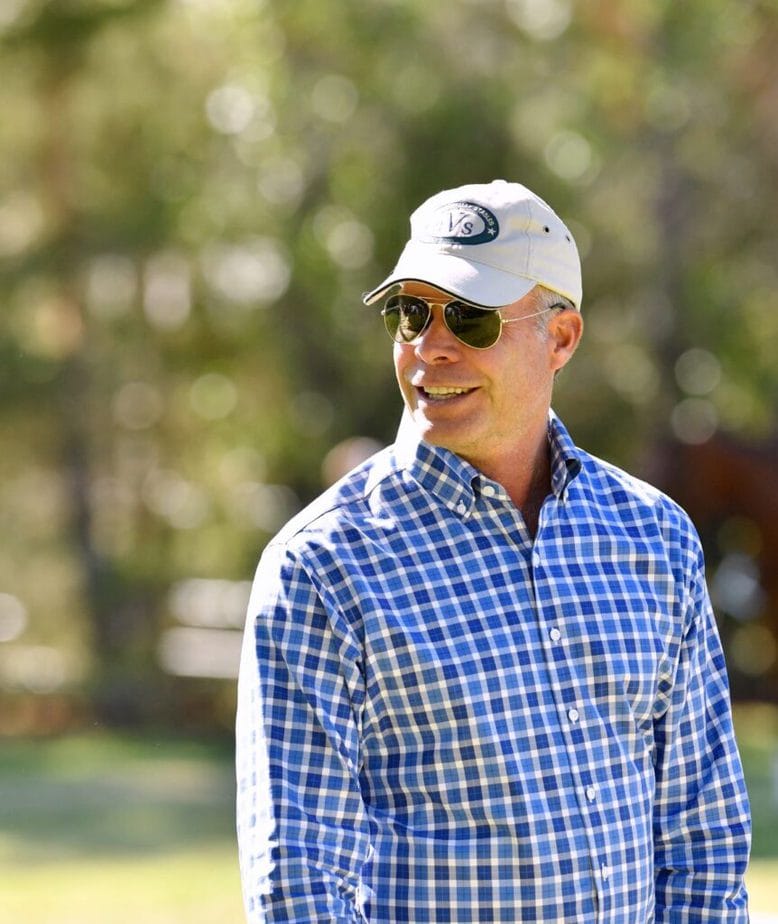
Photo by Alden Corrigan Media.
EQuine AMerica: Hi, Ned, it’s so nice to meet you. Thanks for talking with us.
Ned Glynn: Of course. Nice to meet you, too.
After researching you a bit, you obviously have a serious drive and commitment to your horses and clients. Where does that come from?
At the end of the day or at the end of a lesson, if I feel like I’ve communicated with that horse and rider, if I’ve given that horse a chance to progress and we’re moving in the right direction―that really excites me.
I’m motivated by communicating with the horses. I’m always watching their ears, watching their eyes, watching how they move. With the ones I work with regularly and for long periods of time, I know how big their strides are, how small their strides are, how much energy they have, how their coats look. I’m processing it all daily, and I truly love it. I feel a little like it’s my duty to make sure that what they’re saying is heard and I’d like to think that I’m really good at it.
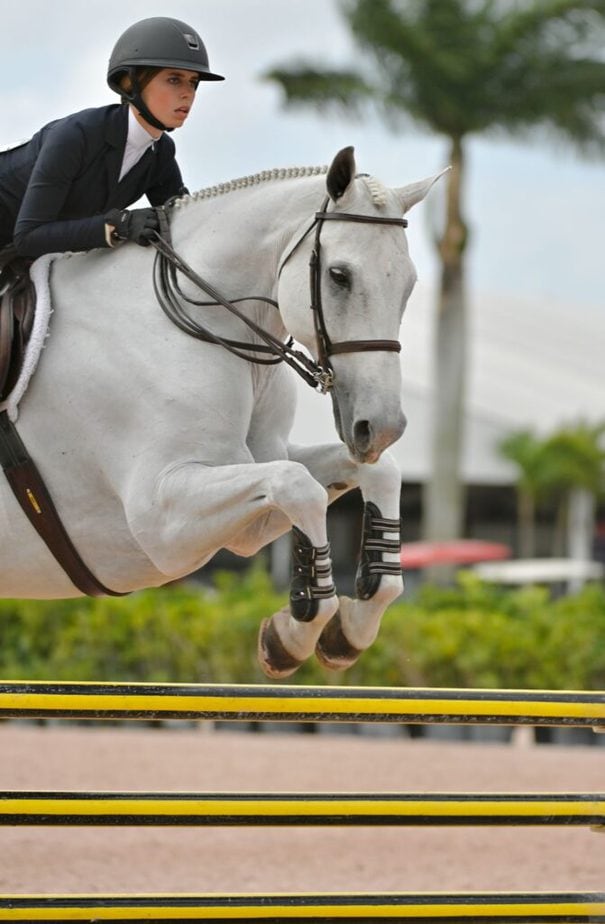
That leads me to one of my favorite things to do, which is work with my daughter Avery, who is arguably one of the top Junior riders in the country right now. Avery is a very passionate, dedicated, and motivated rider with an incredible desire to learn about these animals and thrive as a competitor, as well as becoming a horsewoman.
I teach her how to look for the signals in her horses, how to set up long-term programs, how to address soundness, and how to address the ups and downs of trying to be as competitive as possible while keeping the horse’s wellbeing at the forefront, which is really tricky in our industry because often the results are what get you notoriety or get you where you think you want to go. I’m 100% competitive and I want to achieve results. I love being in the Winner’s Circle, but for me, “results” means getting everything out of a horse―for it to have a long career and to achieve its full potential. All the wins fall into place if you do those things well.
Do you think that your aptitude for horses is instinctual, or is it something that you learned? You have a strong focus on horsemanship. Do you think horsemanship is instinctual for you? Do you think that you passed it on to your daughter, maybe? Or is it something that you learned, and you passed it on to her that way?
Yeah, that’s a really, really good question. It’s funny because I consider myself very fact and science-based, but as I mature, I 100% believe it’s instinctual. I was born this way, and yes, it has passed on to Avery.
I can remember those first horses at age 12, just being in awe. My ability to communicate and understand them, and knowing when to push, when to be stern, when to reward… I believe I had all those things when I started. It can be learned to a certain extent, but it helps to have some innate abilities. It’s nature versus nurture, basically. I think I’ve been fortunate enough to have both. I think I was born passionate about them, and with instincts to understand what was going on with them, and what will make them thrive and achieve what they can. Then, because I’m passionate about it and I pride myself on putting a lot of time into it, I’ve honed those skills. So now, I think it’s both.
I don’t think I’d still be doing this if I didn’t instinctually feel like I was connected to the horses. It gets me motivated to get up and do all those drives, fly wherever I need to fly, write those contracts, and return all those texts, Facebook, and WhatsApp messages… I must get 50 messages a day. Those parts are fine; I’m okay with them. But what keeps me going is knowing deep down that the horse couldn’t have a better partner and advocate in order to give them a chance to succeed.
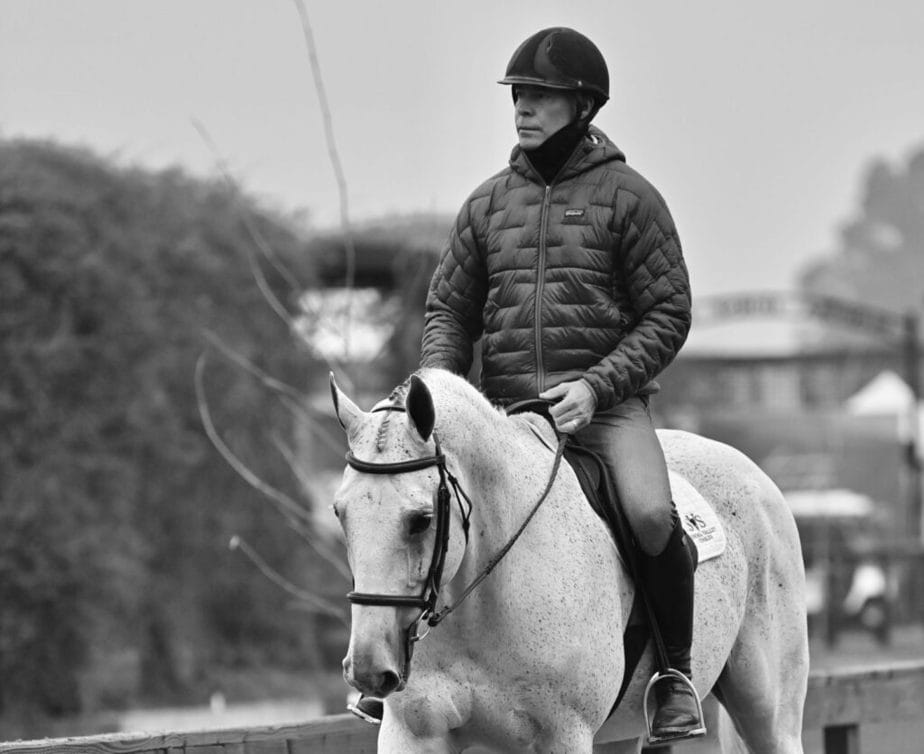
Usually, people are a good horseman/terrible businessperson or a good businessperson/terrible horseman. You’re a good horseman and businessman. And you’re also a people person. You tick so many boxes, and that’s not common.
I’m very fortunate… That’s why I will push Avery to go to college because I think, to do this―the wonderful part that I love, those moments, those couple of hours a day where I’m just working with the horses and riders―you do have to do all those other things pretty well. I think giving Avery a little bit of time to mature and learn some business skills and some communication skills will give her later opportunities to do the fun stuff like the riding and the actual horse work.
One of the things that I was really impressed by in all the things I found in my researching you is that you have an incredibly well-rounded background between different trainers that you’ve had, working with a vet, a course designer, etc. Can you talk a little bit about those experiences?
That all goes back to my parents, who are amazing people. I’m fortunate to have them both living on the ranch with us. When I was in high school, I started talking to my dad about becoming a professional, because he knew I was passionate about it. He just had the vision that I needed to be a well-rounded person to survive the business aspect of it, and I’d be better at what I do if I understood the different parts of the different people who I would be working with, whether that be farriers, show managers, course designers, haulers—all of it.
I got lucky with the vet piece by working with J.D. Wheat, who was a legendary teaching Veterinarian at U.C. Davis for many years. He was semi-retired and doing less, but he was passionate about what he did, and I think he saw the same in me. He would come out to the farm once a week, and we’d just pull horses out and do things. He’d say, “What’s going on with this one? What do you think?”
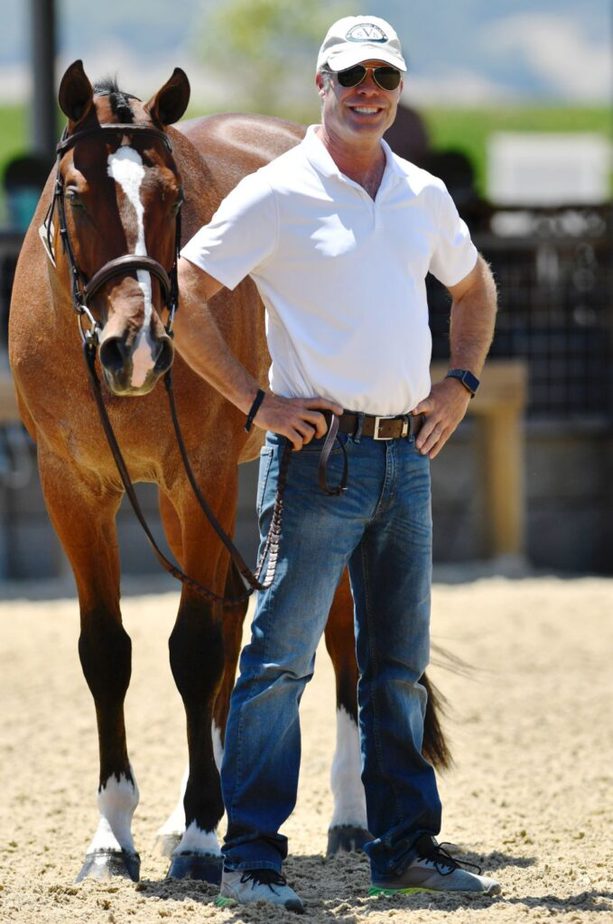
We’re constantly going to have injuries happen, but if you can catch the start of an injury and shorten the layup time by three months, or if you can catch a chronically inflamed area and get treatment on it so a horse can get an extra year or two of competition—that’s invaluable. These horses are $50,000.00 to $250,000.00 and above. So, what’s an extra year worth on your favorite horse?
One of the things I wanted to talk to you about, and this is kind of going back in time a little bit, but after you graduated from UC Davis, you drove your horse across the country.
The horse’s name was Don Cortino, a.k.a. “Donny.” He was actually my sister’s dressage horse that started rearing, so we gave him a second career. He turned out to be a fantastic equitation horse.
I had hauled a little bit locally, but not a lot. I popped my horse in my three-horse trailer and drove to Utah. I had an appointment to layover for the night at a fairground in Salt Lake City. I didn’t calculate the time change, so I showed up with my horse and my trailer at 8:45PM after an 11-hour drive and they had closed the gates at 8:00PM. So here I am in Salt Lake City on a Sunday at 9:00PM with no place to go.
I had bought a book that was just for emergency layover places across the country, I opened it up, and I found one. I called, and I got so lucky there was a Pony Club barn that was coming home from a show. I told them I had a Grand Prix horse, which we’d done some local Grand Prix and stuff. They gave me their address. I got there at midnight in Salt Lake City, and there were six eager, friendly, young girls there helping me unload Donny, brush him, and put him away.
I forgot a couple of buckets when I left the next morning. At the end of that tour, five months later, I was going to use that pony club barn as my layover place on the way back and pick up my buckets. When we got there, they had his stall decorated with his name and all this amazing stuff!
I can still remember my heart sinking that night when I was exhausted showing up late in Salt Lake City, but it kind of showed me that there are other people out there that are passionate about horses, and it’s a community that takes care of each other. I found out that night that no matter where I was going, if I was true to this passion, there were other people out there that were as well. It was so evident in that moment.
So, I stopped in Salt Lake, then I went to the Colorado Horse Park to meet up with Hap Hansen and Phillip Cillis. I learned quickly that Hap is a man of few words. You learn from Hap by watching. You learn from Phillip through his instruction. So, I got both. I got to be with Hap and be motivated and watch his riding, and I got to be with Phillip who was a great instructor. I learned there’s a couple of ways you learn to ride; Phillip verbalized and communicated fantastically while Hap was an incredible inspiration to watch and be around, and I just sucked up knowledge from being around him.
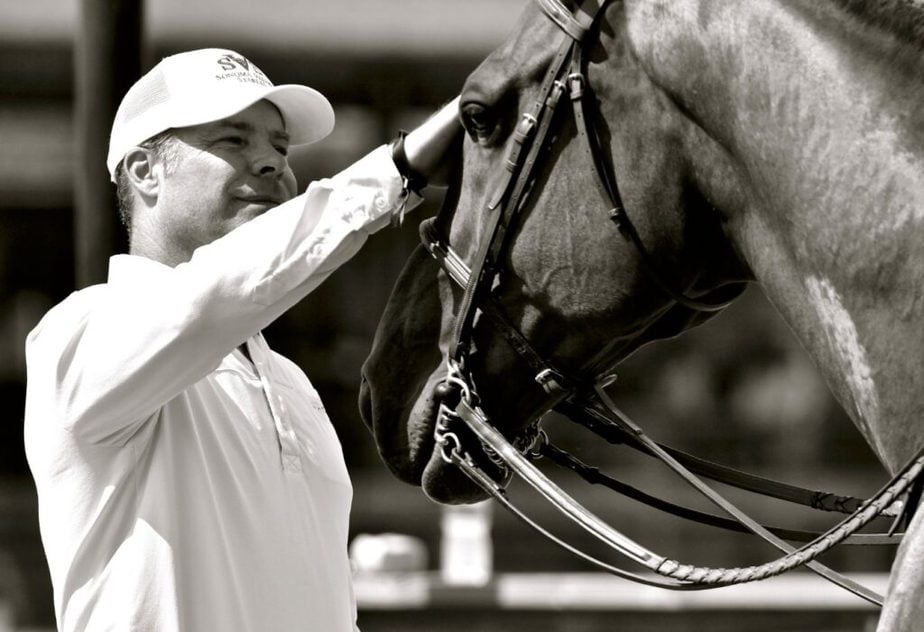
Then I ended up meeting Candace King in Cincinnati. Candace was riding with George Morris at the time, so I got really lucky and got to go to Attitash, New Hampshire and then the Hampton Classic, and George was at those shows. I got to ride with both of them, but George took over and instructed me at the Hampton Classic. In fact, I was doing my own grooming at the time, and I was a little late to a course walk. I’ll always remember this. I was probably four minutes late, and I had my boots cleaned and I was doing all of my own grooming, and there was George. I walked out into the ring, and George looked at me and he said, “Run, boy. Run. You’re always on California time. You’re not in California anymore. Run.” I actually thought, ‘Is he serious? Yeah, he is!’ and I ran to catch up to the group.
With all you’ve got going on, how do you find time to be a Zone 10 Co-Chair? Why do you feel that it’s important?
I feel very strongly that having some voices from horsemen and trainers that are looking out for their clients, is really important. I just really think it’s important for trainers, and my owners, and my riders to have a voice. I think that we’re so busy as trainers and riders that we as a group are not good at making time for being in board meetings. I think the management side, and the employees of management (which are the stewards, judges, and course designers) have more time and are good at it. Then, by default, the board gets incredibly weighted in management and their employees versus trainers and owners.
I feel really driven to keep an eye on it because, for me, if the sport is thriving, it’s great for me. The more people that come into this sport is fantastic. So, the quality and the safety of the events for the horses and the exhibitors are so important. Quality, safety, and price points staying moderately to very expensive versus ridiculously expensive―that’s what’s going to keep our sport around.
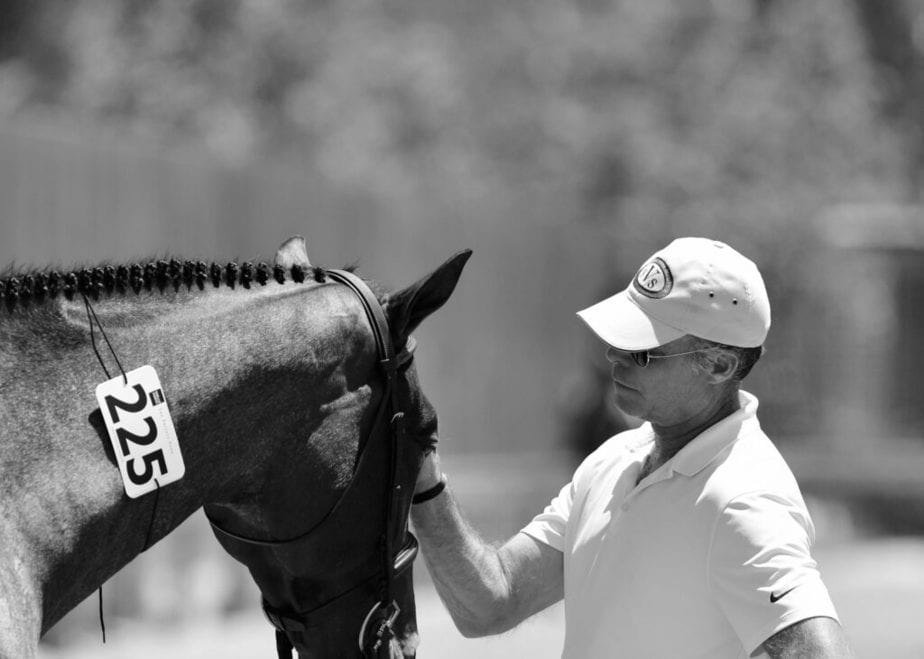
You really walk the talk with your own Sonoma Valley Stables Derby Weekend. You wear a lot of hats for that show, including producer, promoter, benefactor of a community food bank, etc.
I was told that we are one of the biggest donors to the biggest food bank in Sonoma County. That is pretty amazing considering that we put on that (unrated) show with 30 outside horses and 30 inside horses, so 60 horses. The quality level is as good as the premiere shows: footing, jumps, judging, safety, scheduling, everything—done much better. As a result, we have donated $20,000.00-$40,000.00 for three years in a row. That tells you that if you do this right, it works.
Where do you find the energy to do it all?
At the end of the day, what motivates me is keeping my eye on the prize: producing and developing horses, building relationships with clients, and enjoying the few years that I have left with my teenage daughter still at home. Even though we have a super busy schedule, I always look forward to getting home. There are vets I want to talk to, there are horses I want to see, there are things I want to do, and to me, that’s a great way to live.
As an equestrian media outlet focused entirely on American horse sport, EQuine AMerica showcases the USA’s equestrian talent (both two-legged and four) in the disciplines of para dressage, dressage, hunters, jumpers, and eventing. We support and promote our nation’s fantastic equine events, products, services, artists, authors, science/tech, philanthropy, and nonprofits through our online magazine and social media platforms. Our mission is to offer you interesting/inspiring short and long-form content in a format that’s beautiful, readable, and relatable.



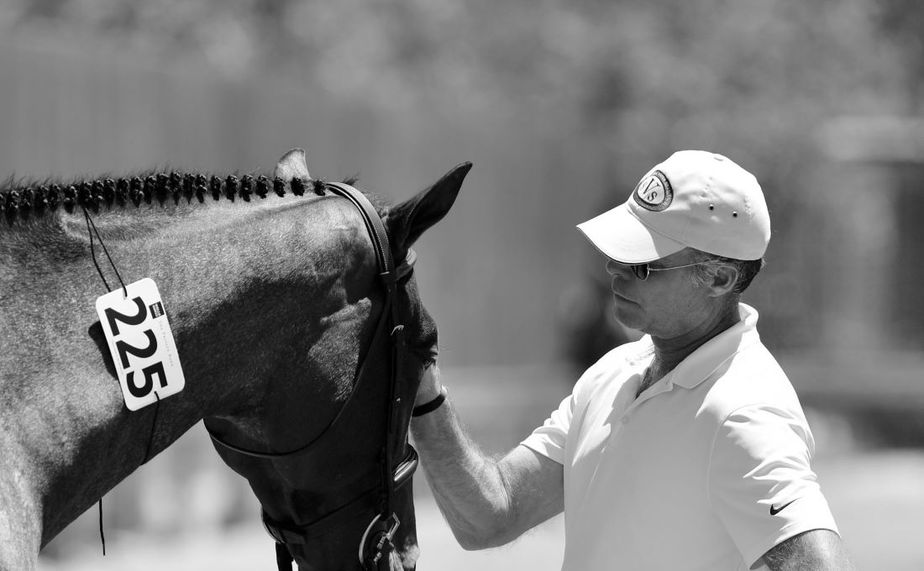
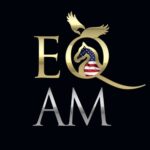
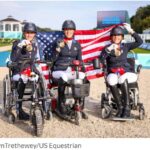
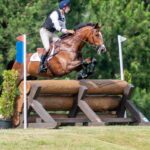
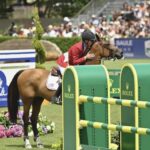
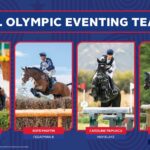
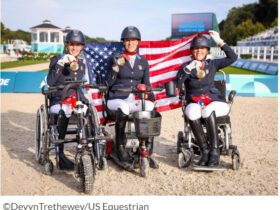
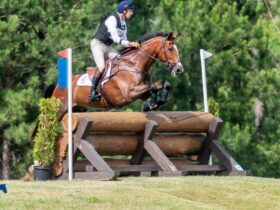
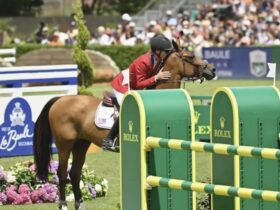
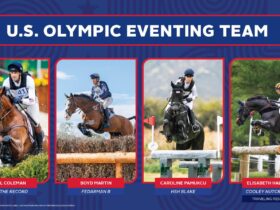
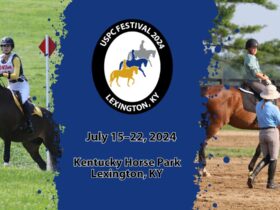
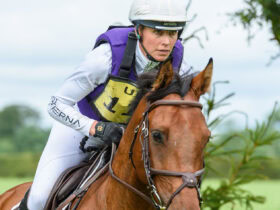
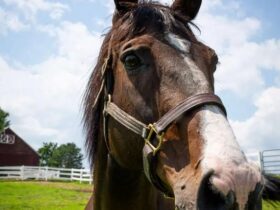
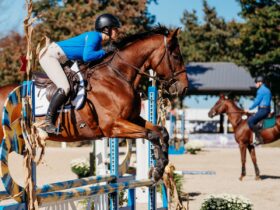

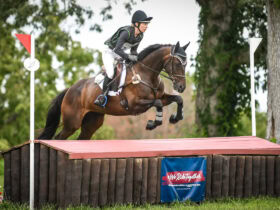
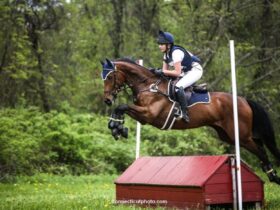


SOCIAL